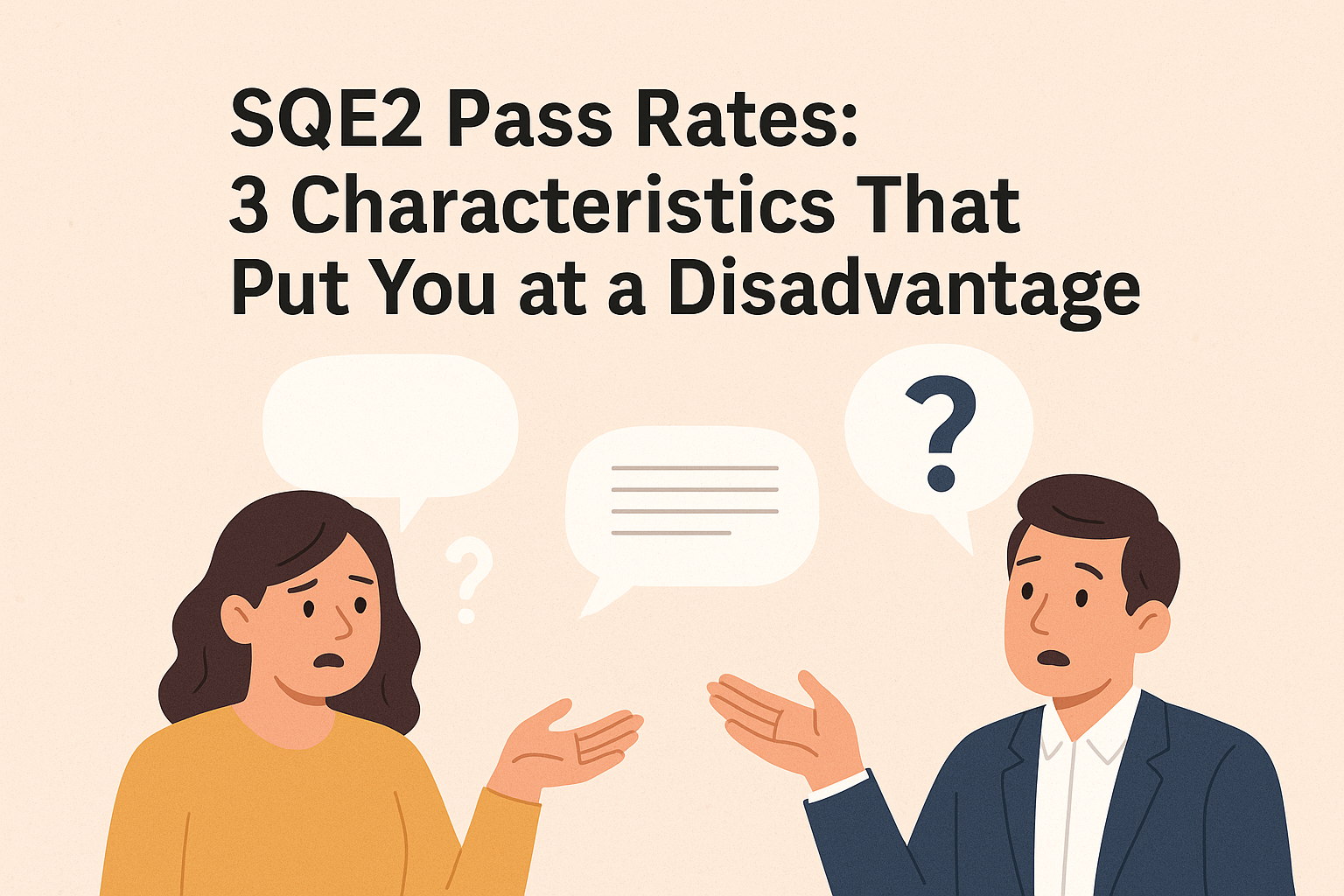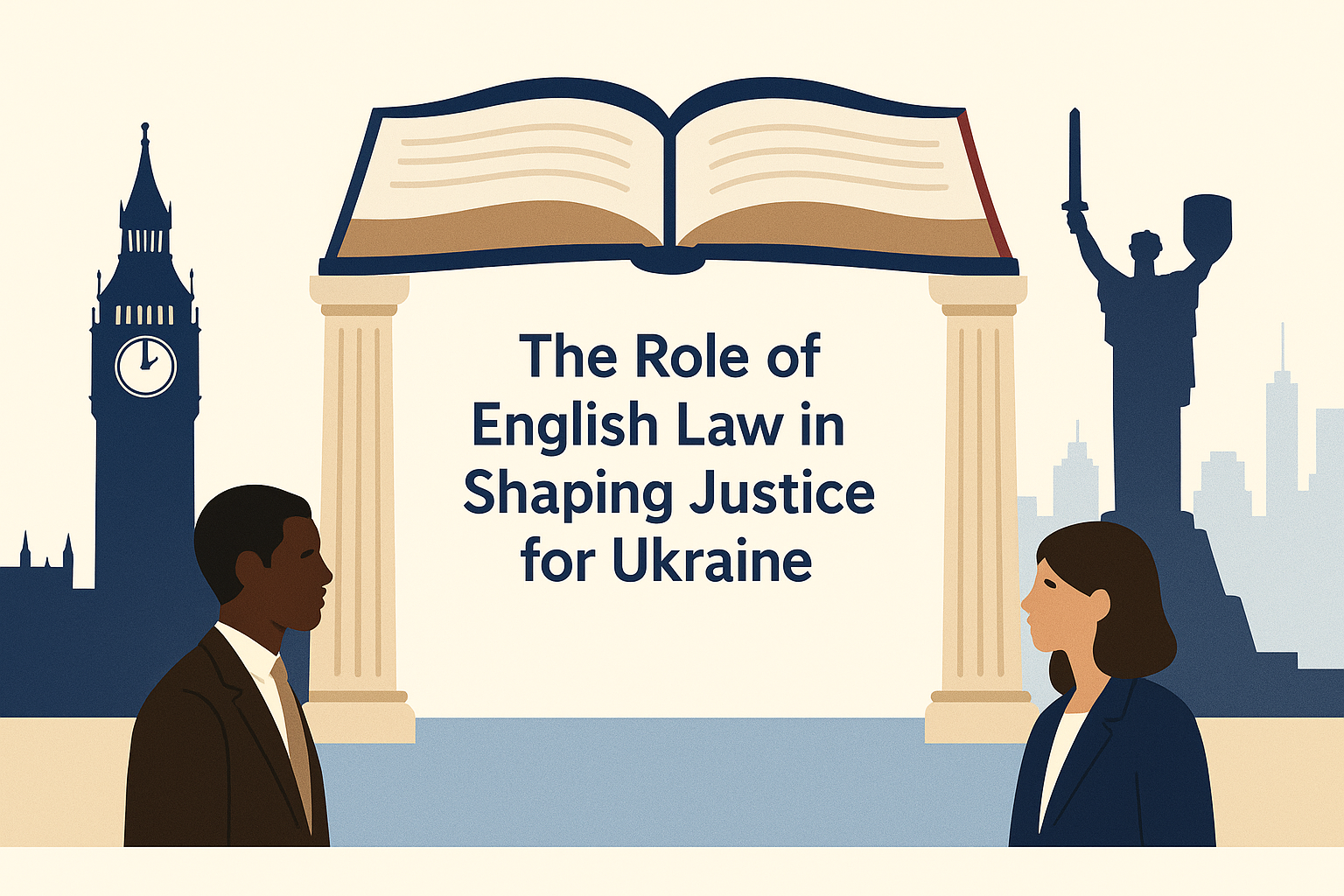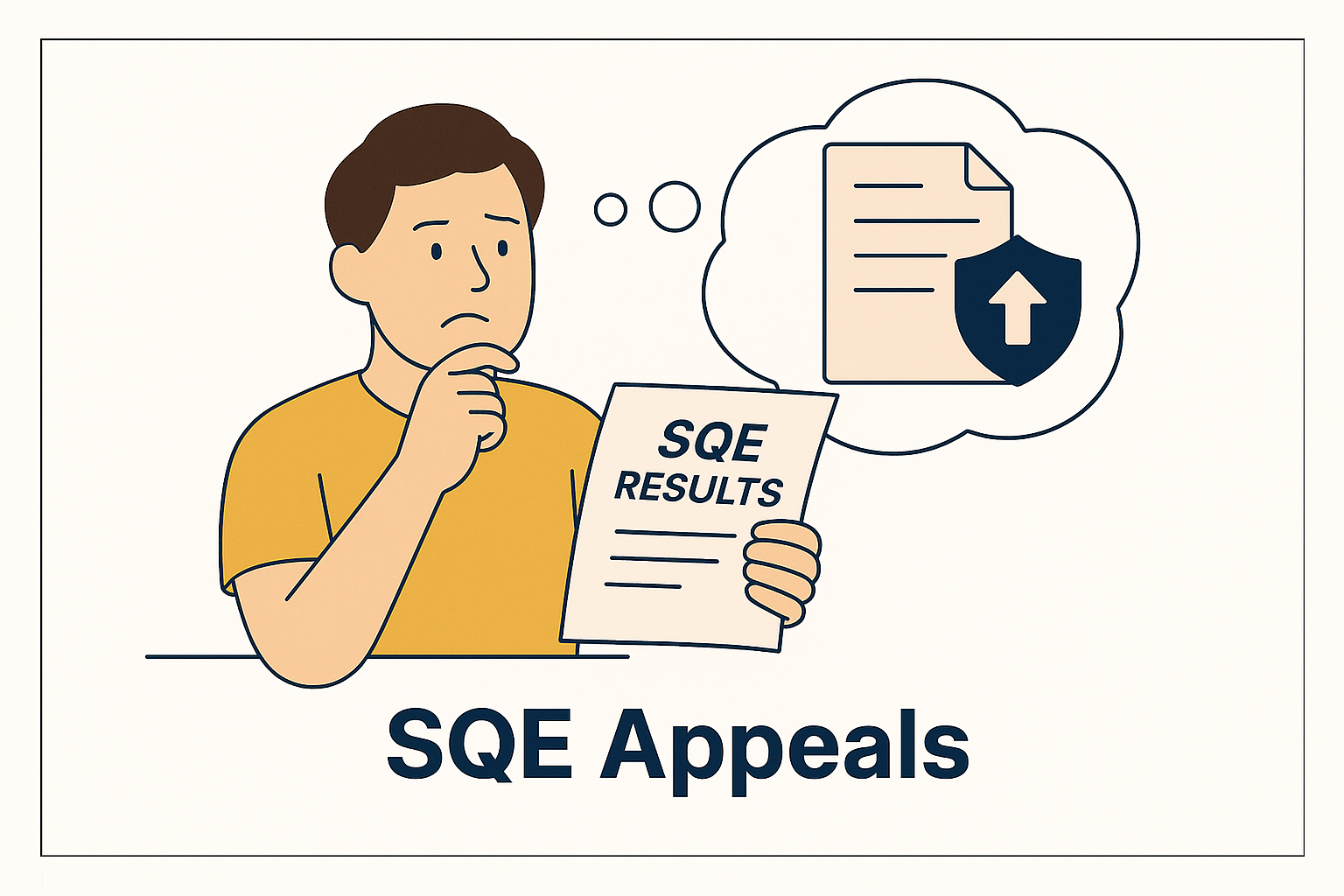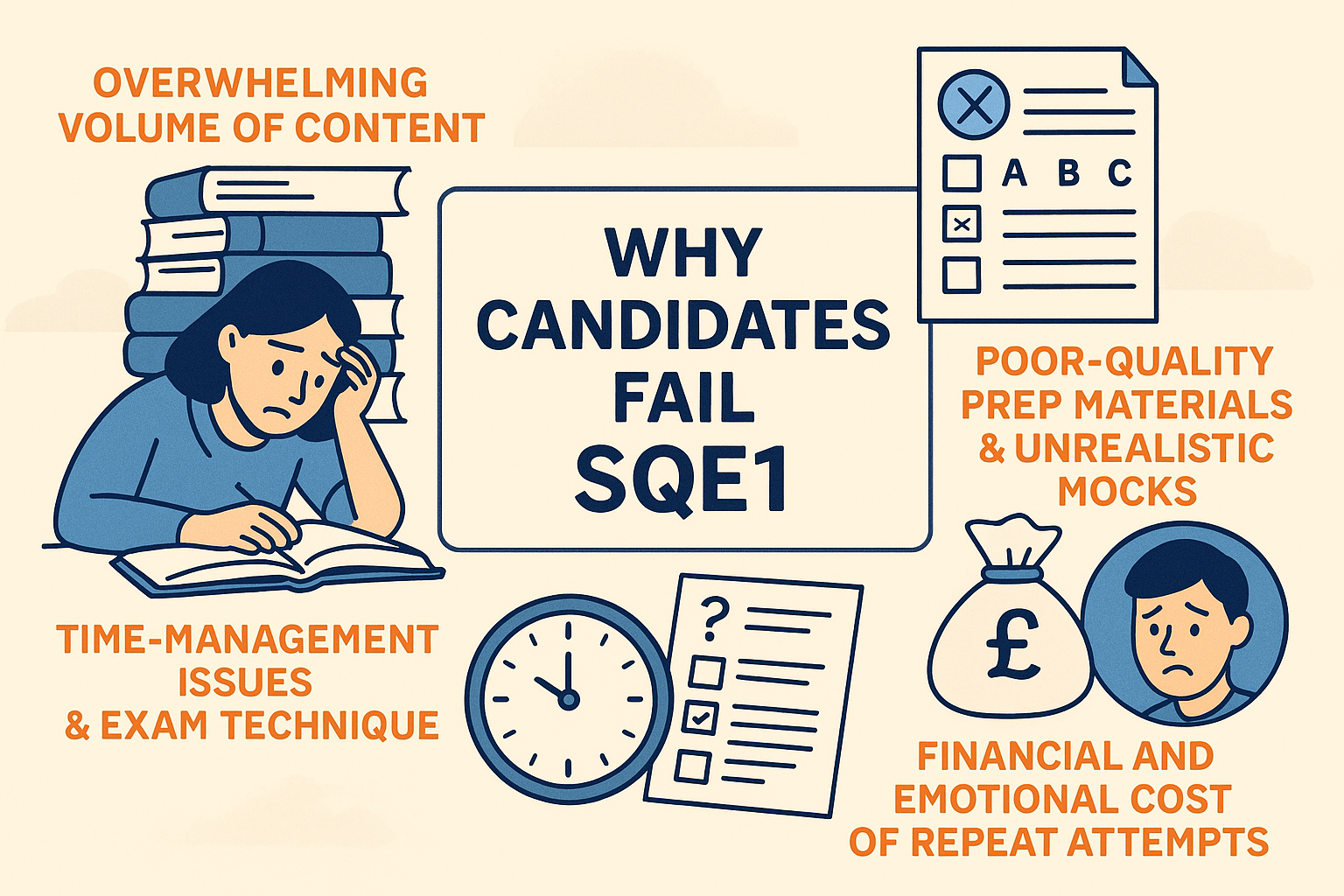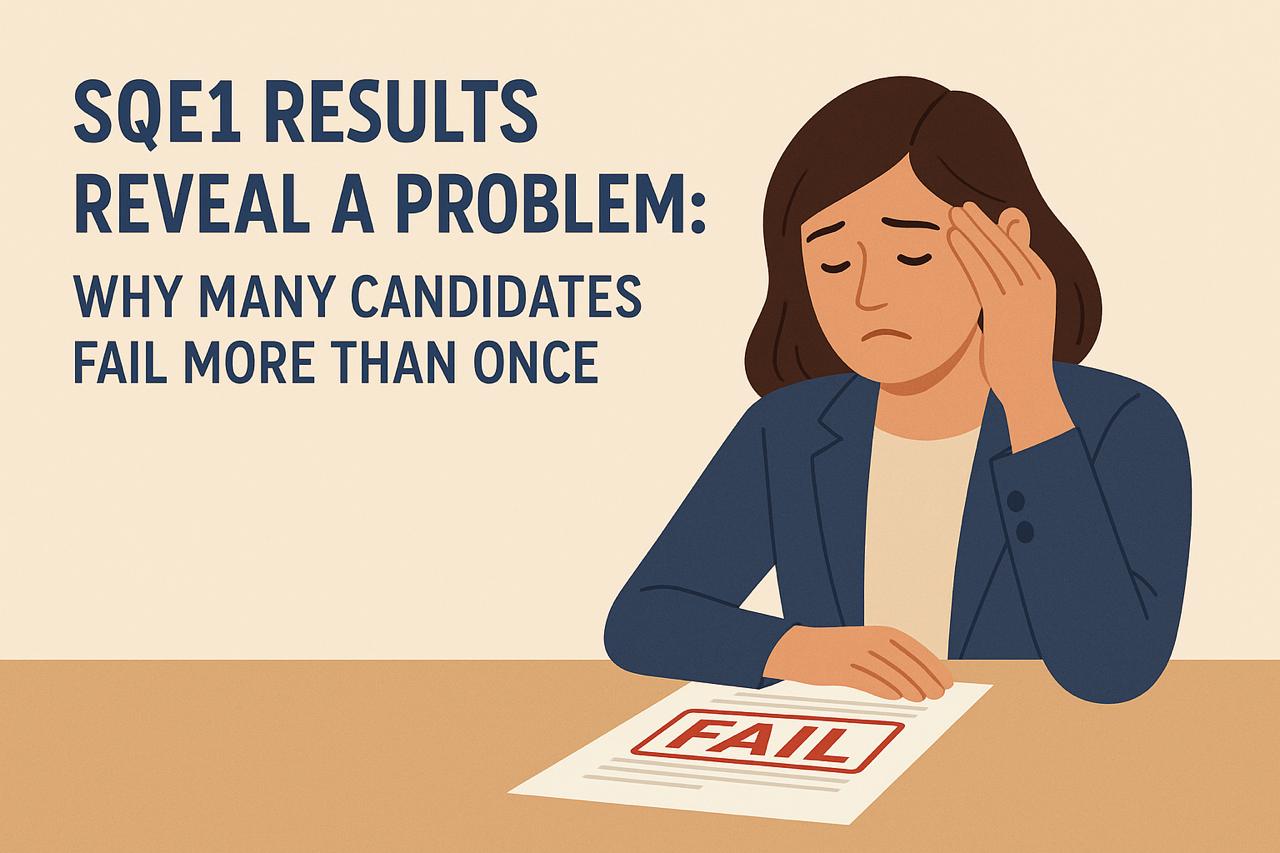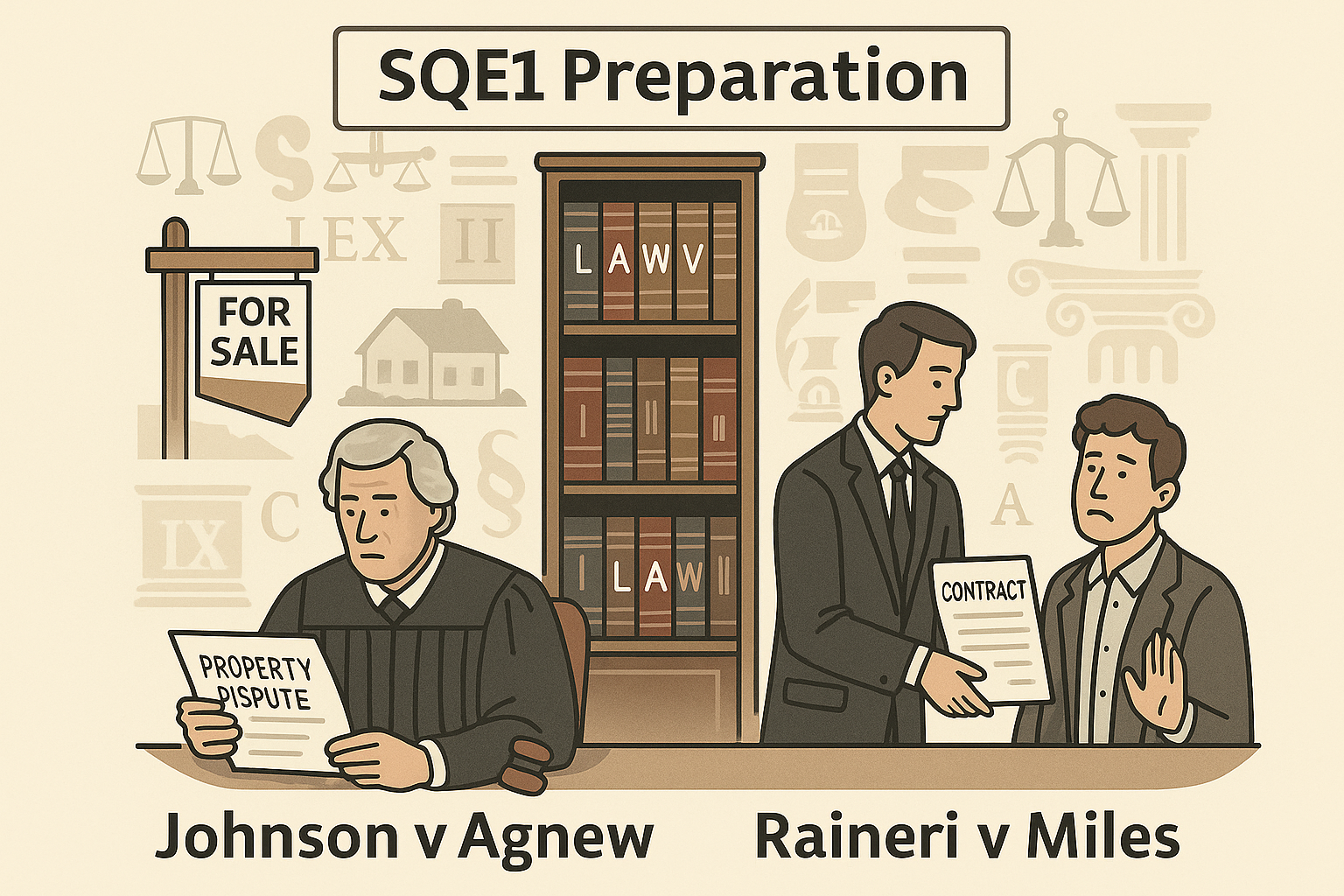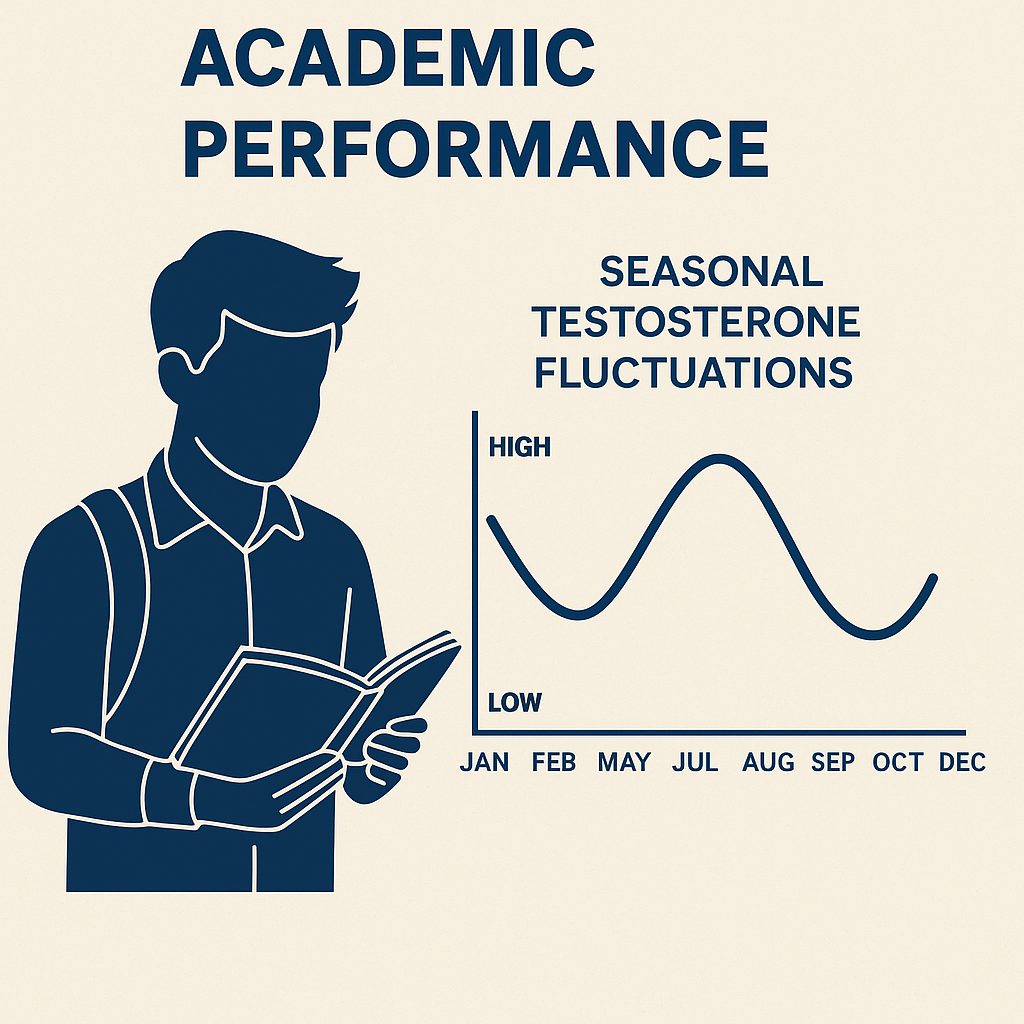Understanding SQE2 pass rates is crucial for every aspiring solicitor. Whether you’re just starting your preparation or have faced an unsuccessful attempt – analysing SQE2...
The author is a Ukrainian advocate with over 15 years of legal experience and is an aspiring solicitor. We currently study English Law in preparation...
If you’re both an LPC graduate and a foreign-qualified lawyer, you have two potential SQE exemptions: The problem is you cannot benefit from both and...
Challenging SQE results is regulated by the SQE Appeals Policy (Policy). This article is a detailed guidance for aspiring solicitors. It does not constitute legal advice. Note, we provide the opportunity for a free analysis of your SQE2 breakdown.
The latest SQE1 exam results highlight a troubling trend. A significant number of candidates fail the SQE exams multiple times. ☹️ Understanding the reasons behind...
Part of the “Struggling SQE Candidates” Series: Support for Foreign Lawyers, LPC Graduates & Underrepresented Groups This article is part of a wider series by...
When preparing for the SQE1, especially for subjects like Property Practice, it’s not enough to simply memorise rules and procedures. Understanding how those rules are...
Legal systems regulate property ownership to ensure clarity, security and enforceability of rights. In England and Ukraine, property transfer follows distinct legal traditions shaped by...
There is a growing body of research suggesting that testosterone may influence cognitive performance and focus, which could be relevant for male students preparing for...
